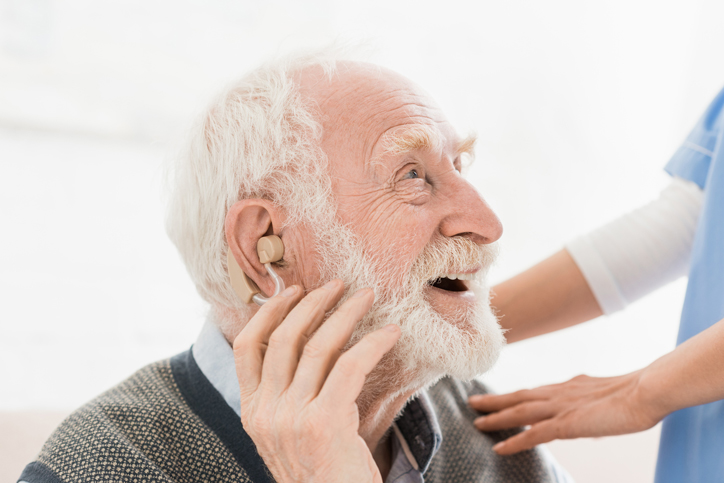
Hearing impairment in older adults is common. Learn ways to help seniors cope.
Isolated. Misunderstood. Left out. These are just a few of the many emotions which are common in individuals with hearing loss, who find it hard to continue to maintain social connections with friends and family members, who struggle to communicate with them.
Hearing impairment in older adults is quite common, for a number of reasons: genetics, a lifetime of accrued damage from noise, disease, plus the process of aging itself. And while frustrating when wanting to join in discussions, hearing loss can be hazardous as well, leading to missed information given by medical professionals, alerts, doorbells, and alarms which might be unheard, and more. In addition, untreated hearing loss puts seniors at a higher risk for developing dementia, as cognitive abilities decrease at a quicker rate.
In the event that you think an older loved one may be struggling with hearing issues, review the following checklist of hearing loss warning signs:
- Complaining of other people muttering
- Turning the TV or radio up to volumes that bother others
- Often asking others to repeat what was said
- Struggling specifically with hearing women’s and children’s voices
- Becoming lost in conversations with more than a couple of people
- Trouble hearing on the phone
To better communicate with an individual with hearing loss, try the following tips:
- Speak clearly, at a reasonable pace, while facing the individual and keeping eye contact
- Use gestures as well as other nonverbal cues in conjunction with your words
- Minimize background disturbances and potential distractions
- Remain patient, relaxed, and positive
- When asked to repeat something, try using different words
There are lots of useful adaptive devices on the market that your loved one’s doctor may recommend, including:
- Hearing aids: With several different types available, make sure your senior loved one asks for a trial period prior to investing in a particular hearing aid, as insurance might not cover the cost, and they are often expensive.
- Cochlear implants: These electronic devices are suitable for those with severe hearing loss; however, they are not effective with all types of hearing loss, and may also need to be supplemented with added adaptations, such as flashing doorbell lights or vibrating smoke detector alarms.
- OTC options: Individuals with mild or moderate hearing loss may find relief from new over-the-counter hearing products, which amplify sounds; soon to be available for purchase on the internet and in stores.
The following resources can provide more information and assistance for individuals experiencing hearing loss:
Hearing Loss Association of America
301-657-2248
American Speech-Language-Hearing Association
800-638-8255
National Institute on Deafness and Other Communication Disorders
800-241-1044
Abby Senior Care, providers of trusted companion care in Denver, CO and the surrounding communities, can also offer invaluable assistance to those with hearing loss, such as tips for adaptive devices, transportation and accompaniment to medical appointments and procedures, friendly companionship to stave off loneliness, and much more. Contact us today at 303-699-8840 to learn more about our professional in-home assistance which makes life safer and more enjoyable, and for additional hearing loss resources.
